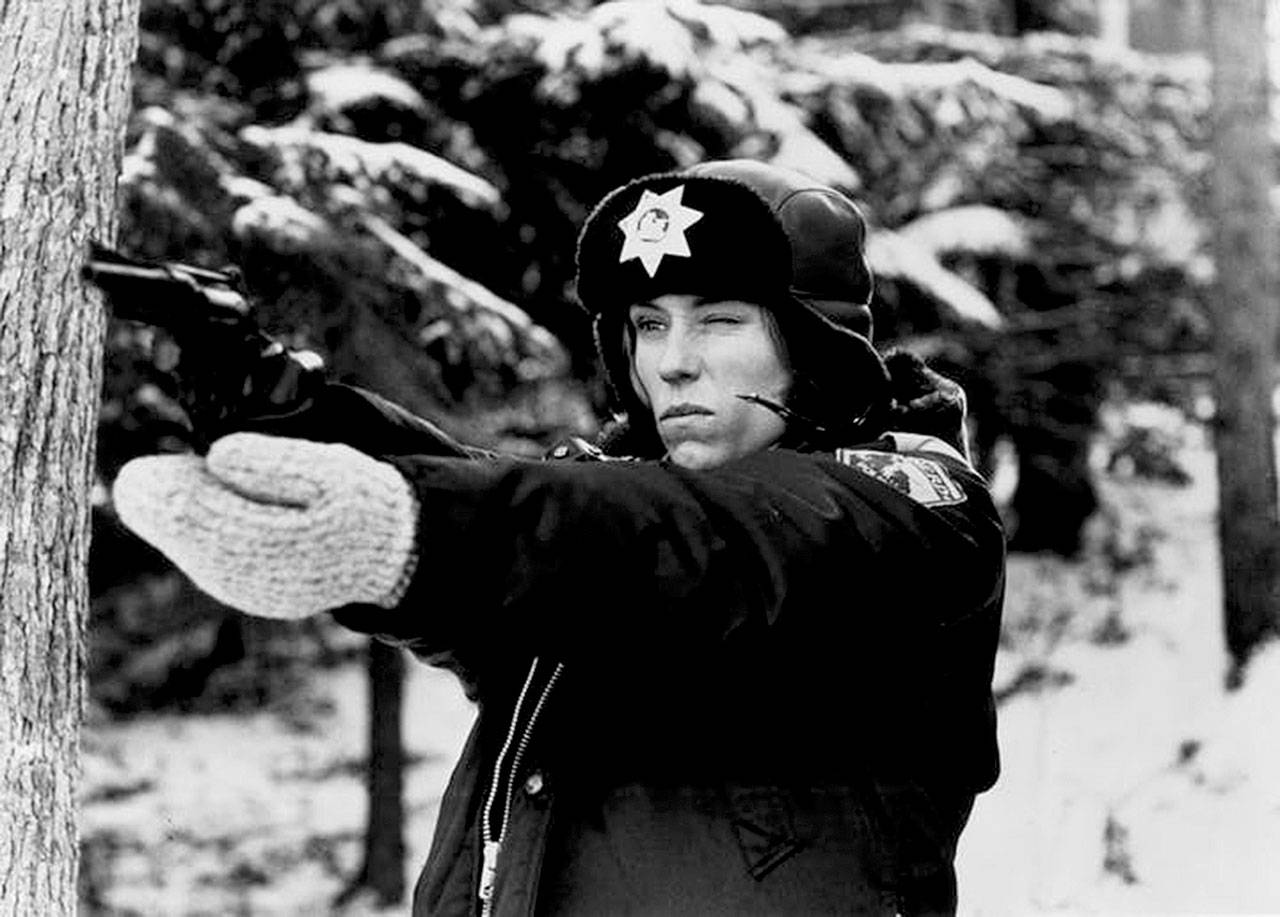Rick’s Picks
By Rick Anderson
Particularly when it involves my sports coverage, I’m as sensitive to criticism as the next person.
But when readers disagree with my movie reviews, my standard response is generally something like “You may be right,” or “Your opinion is as valid as mine.”
To pretend otherwise would be hypocritical. Film criticism is among the most subjective of efforts, and I’ve frequently bucked the critical consensus in my evaluation of movies.
For example, I consider such classic films as “Gone With the Wind,” “Some Like it Hot,” “Vertigo,” “The Searchers,” “Titanic” and “Forrest Gump” to be at least mildly overrated. And, while I tend to avoid movies with terrible reputations, I did think the infamous Warren Beatty-Dustin Hoffman comedy “Ishtar” was slightly better than its reviews.
In most cases, my differences with the majority are relatively minor. Sometimes they are more pronounced, as evidenced by the following examples.
“Fargo” (1996)
Admirers of this black comedy about a kidnapping gone awry are clearly in the overwhelming majority.
It is included among the American Film Institute’s Greatest 100 Films. Legendary critics Roger Ebert and Gene Siskel each ranked it as the best movie of that year. And Frances McDormand earned a Best Actress Academy Award (legitimately, in my view) for portraying the police chief who eventually cracks the case.
Despite the impressive acting, however, this is one highly regarded film that I truly can’t stand.
The Oscar-winning screenplay by brother Joel and Ethan Coen take a condescending, rib-nudging approach toward violent crime (seven characters, many of them innocent victims, are killed) in general, and Upper Midwesterners in particular.
The rural Minnesotans who populate the story are almost universally depicted as slow-witted dorks. Even McDormand’s character, although good at her job, is socially awkward.
Such critics as Leonard Maltin who applaud the film’s “droll observations about Minnesotans,” might have changed their tune had the story been set in an inner city, with the main characters as minorities. Then, I believe, it would have been widely — and legitimately — classified as racist.
“China Moon” (1994)
Perhaps my favorite film noir of the past 30 years, this relatively obscure drama received only a 40% approval rating on the Rotten Tomatoes website.
Ed Harris stars as a lonely but capable police detective. After unsuccessfully attempting to pick up an unhappily married woman (played by Madeleine Stowe) in a bar, he finds himself professionally and personally compromised when she becomes involved in a domestic violence case and a shooting.
Detractors dismissed this film as a pale imitation of “Body Heat” and “Double Indemnity.” There are similarities in the plots, but Harris, Stowe and Benicio Del Toro (as Harris’ police partner) are intelligent performers who create multi-dimensional characters that seem more believable than their predecessors in the genre.
It also concludes with a different twist ending than the one I thought I saw coming.
Roger Ebert was on my side in this case, giving the film 3 1/2 stars. That’s about right.
“Silver Linings Playbook” (2012)
Jennifer Lawrence won an Oscar as a young widow with emotional issues who hooks up with a bipolar man (Bradley Cooper).
Had the word “meh” been in common usage eight years ago, it would have summed up my reaction to this comedy-drama.
Parts of it works, thanks primarily to an exceptional cast that includes Robert De Niro as Cooper’s gambling-addicted father. But writer-director David O. Russell seemed to want to create a romantic comedy out of material that wasn’t particularly humorous (or romantic, for that matter). A now-deceased college friend of mine was bipolar, and I’m certain that she didn’t find her condition very funny.
Academy Award voters evidently disagreed, since they rewarded the film with eight nominations. Even after a second viewing, I didn’t see that type of quality.
Recent films by Martin Scorsese
The legendary director is routinely described as America’s greatest living filmmaker. Some of his earlier films, such as “Raging Bull,” “Taxi Driver” and “Goodfellas” justified that reputation.
Since the early 1990s, however, it seems Scorsese has been recycling the same material — even in his Oscar-winning 2006 crime drama, “The Departed.”
His standard theme is that gangsters tend to curse a lot and kill people. I think I already knew that.
Rick Anderson, retired sports editor of The Daily World, now is a contributing columnist. Reach him at rickwrite48@gmail.com.


